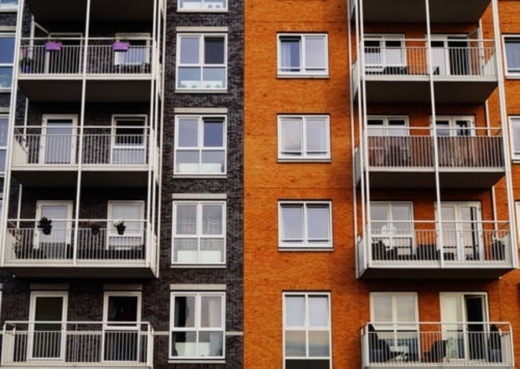According to the Houston Apartment Association, tenants facing job losses or income reductions need to be in immediate communication with their landlords.
John Boriack, president elect of the Houston Apartment Association, said many apartment managers are able to waive late fees or come up with a payment plan for residents who cannot pay on time.
“It's been really cool to see both parties, the renters and the managers, kind of coming together and collaborating and figuring out solutions that work best and turn out to be a win-win for both parties,” Boriack said.
Here are some additional financial resources available to those in need:
With bills being due to avoid late payments, this creates some immediate distress for property owners and could even result in a change in the quality of living conditions if there is a big break in rent, Boriack said.
“If there's a break in rent, everything kind of falls apart,” he said. “We have staff to pay, especially our maintenance technicians that keep everything running. There's utility payments to keep the lights on and the dumpsters empty and things like that. And then of course, of course, the mortgage payments, and some of those might be temporarily delayed, but it's really unclear and shaky right now.”
The Coronavirus Aid, Relief and Economic Security Act was signed by President Donald Trump on March 27 to be effective immediately. Within this law, there is a temporary eviction moratorium section that applies to public housing, project-based Section 8 housing, Housing Choice Vouchers and low-income housing.
Under the CARES Act, nonpayment evictions cannot be filed in any of the aforementioned covered properties until July 25. The Texas Supreme Court has also suspended eviction hearings until April 19, said Jeremy Brown, the Harris County Precinct 7 justice of the peace.
“I suspect they may extend it, particularly since [Gov. Greg Abbott] has extended his orders to April 30, but quite frankly everybody is taking things week by week,” Brown said.
Boriack said it is too early to tell if the CARES Act will provide a break for any privately owned properties.
“The entire industry is scrambling right now to kind of demystify everything,” he said. “Everything's always well intentioned at the top, but the devil's in the details. So sometimes the intention of the bill can get diluted through the regulatory requirements around actually capturing that by the time it gets down into the hands of those who need it.”
A moratorium on evictions will help those in the Greater Houston area for two big reasons: Unemployment rates are increasing, and the coronavirus is a major public health concern, Brown said. If homelessness rates increased, social distancing would become harder to practice, he said.
“One, with hours being cut back, unemployment is going up,” he said. “Two, it’s a public health concern. Particularly as it relates to those who are low income, that can lead to homelessness, so that can impact our shelters and the common good.”
In addition to renters struggling to pay rent during this time, the trickle-down effect ultimately can hurt apartment property owners, who have their own expenses that have to be paid, Boriack said. Many of these properties are privately owned without other funds or anything to fall back on, Boriack said.
“Whether it's a pandemic or not, we have staff that has to be paid,” he said. “And unlike some businesses that can kind of scale down their workforce to get through a slow season or hard season, apartment properties really have a set amount of staff that it takes to operate that business.”
For privately owned apartment communities, it would be at the property manager’s discretion to determine ways to help residents, Boriack said.
“As far as being able to offer that assistance, there’s thousands of apartment properties all over Houston, and they all have different capacities to help, but I love seeing how most properties are stepping up and doing everything they can to help residents kind of as they're going through this difficult time,” he said.





